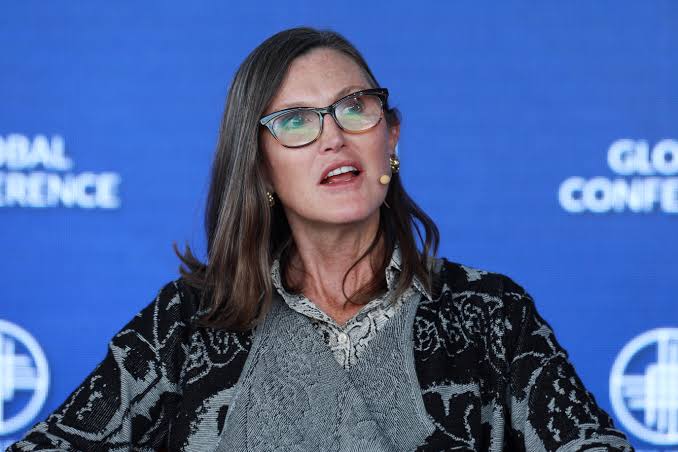In September, Cathie Wood’s Ark was the first business to apply for approval to establish a spot ether exchange-traded fund (ETF), setting the standard ahead of several other well-known candidates. Then, within the last week, it withdrew without providing an explanation.
Chalk it up to the intense battle to lure customers with low fees for crypto ETFs, according to experts.
At this week’s CoinDesk Consensus conference in Austin, Texas, Wood stated during a fireside chat that the reason ARK’s spot bitcoin ETF, which debuted earlier this year, wasn’t profitable for the company was because it charged investors a meager 0.21% fee. That’s a lot less than what most non-crypto ETFs charge, even though it’s comparable to what other bitcoin ETF issuers charge.
“Perhaps this is a simple business decision,” said Nate Geraci, president of the ETF Store. “If Ark 21Shares Bitcoin ETF (ARKB) can eclipse $3.5 billion in less than five months and Ark can’t make any money, that’s obviously an issue.”
In exchange for managing the fund, ETF issuers charge investors a fee. Since that cost reduces returns, a lot of investors want to keep it to a minimum. Grayscale set its fee at 1.5% in the race to introduce a spot bitcoin ETF, much higher than its rivals. This seems to be the primary cause of the billions of dollars that investors have taken out of the fund, as well as the reason that the fund lost its early lead in assets to BlackRock.
“I don’t think anyone truly expected the fee war to get that aggressive before we even saw launches,” said James Seyffart, ETF analyst at Bloomberg Intelligence.
Seyffart also believes that Ark made the decision based on the low fees. “It’s possible that the partnership made a ton of sense, particularly with the demand for bitcoin ETFs,” he said. “But after the fees got so low right off the bat, there might simply not have been enough money from fees to go around for both firms, particularly on an Ethereum ETF if they are expecting less demand versus bitcoin ETFs.”
The cost for Franklin Templeton’s fund, which is set at 0.19% according to a filing and is the same amount it charges for the Franklin Bitcoin ETF, is the only information that the aspiring issuer has disclosed thus far.
Despite the low fee structure of the ETFs, Ark’s departure from the race came as a shock, given the asset manager’s strong footing in the industry and its offering of multiple other ether-related funds.
“This is a surprising move from my perspective,” said Geraci. “From a longer-term branding perspective, I’m surprised Ark wouldn’t find value in being involved in the spot ether ETF category. Ark has been much more forward-thinking around crypto than many of their competitors, so it’s odd to see them sit this one out.”

